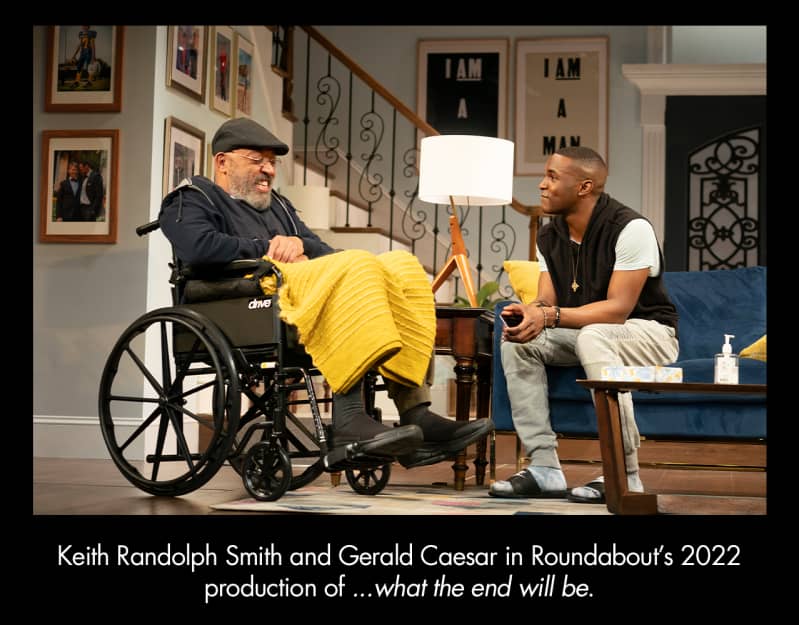LAYNE:
Delayedflight1982 wants to chat.
She accepts.
Lights up on both SAMANTHA and LAYNE for the first time. We enter into a different kind of space now—the world of the Internet—pure fantasy and projection. The women speak their chat aloud while the words, a specific speak only suitable for the screen, are also projected for the audience to see.
Delayedflight1982: Hey!
kingDOMcome44: hey you.
Delayedflight1982: Whats up?
LAYNE deletes that. replaces with:
Delayedflight1982: How are you?
kingDOMcome44: doin pretty well cutie, u?
Delayedflight1982: I’m at the airport, bored. Trying to figure out what to eat.
kingDOMcome44: well what r u in the mood for?
Delayedflight77: Maybe Chinese? Or Mexican?
kingDOMcome44: both fine choices
Delayedflight1982: Thank you!
LAYNE winces at her response.
kingDOMcome44: what r u doing there?
Delayedflight1982: I have a layover. I’m a stewardess.
kingDOMcome44: rnt u supposed 2 say flight attendant nowadays?
Delayedflight1982: Oh, yeah! You’re right. P.C!
kingDOMcome44: lol. got other pix?
Delayedflight1982: I don’t know how to work this thing! Let me take a look.
Delayedflight1982: Check now? I think I fixed it.
Excerpt from Kingdom Come, by Jenny Rachel Weiner. Production Script, pp. 19-20. Roundabout Theatre Company Archives.
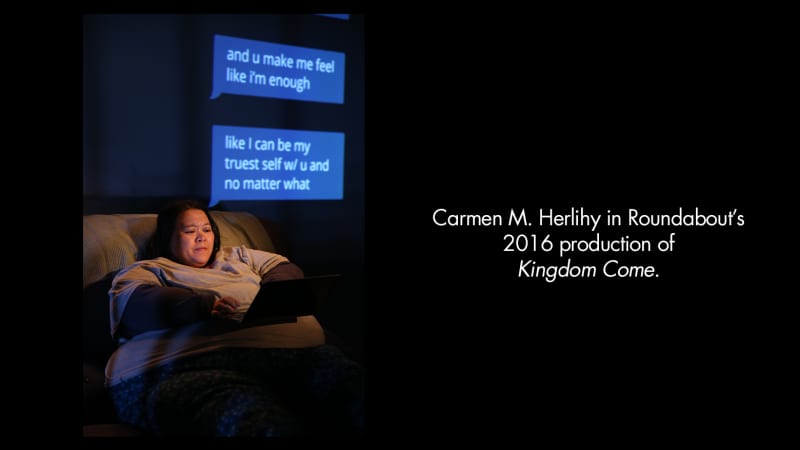
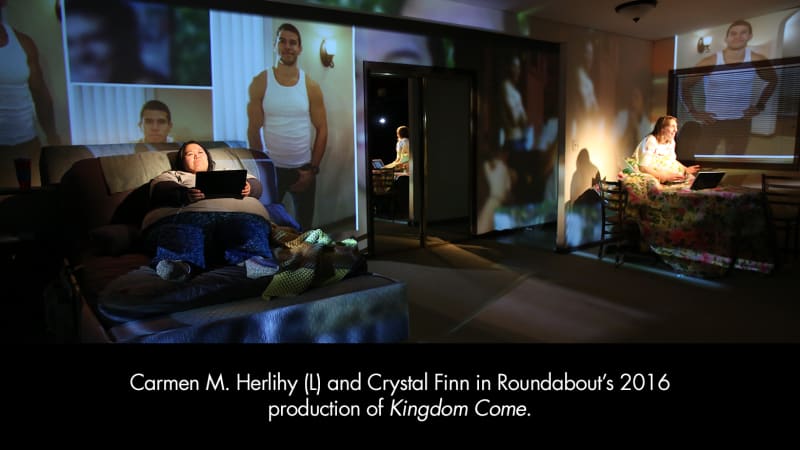
The above scene is taken from Jenny Rachel Weiner’s play, Kingdom Come (Black Box, 2016). The play’s references to online dating and the internet more broadly place it squarely in the modern day – being “online” has now been a part of playwrighting and theatergoing for at least two decades. Kingdom Come employed projection design that displayed the DMs, or direct messages, being sent between the characters Samantha (played by Carmen M. Herlihy) and Layne (played by Crystal Finn) so that we in the audience were voyeurs to their “intimate” conversations in the online dating platform okCupid. Intimate is in quotes because they are communicating as virtual strangers and are not who they pretend to be, making the intimacy false and ultimately problematic.
We are privy to the fact that both characters are fabricating lives and creating online profiles for people they wish they were: Samantha (a housebound woman posing as a handsome male pastry chef named Dom) and Layne (an uneasy homebody posing as a beautiful and worldly flight attendant who is breezily waiting for a connecting flight at an airport) are deeply lonely people hiding their true identities in ways only the internet can accomplish through its inherent anonymity.
Technology has changed how we do almost everything. Our reliance on smartphones, our speedy internet connection, our constantly updating email inbox — these are modern day realities and as such make their way into the text of contemporary plays as well as into our theatre spaces (unwrap your candies and remember, turn off those mobile phones!). Unless the play is set in pre-internet and cellphone times, characters will not refer to a physical letter received through the US Postal Service, or to a call received on the once ubiquitous landline. Instead, characters will fret over emails received (or not), cryptic text messages, Instagram DMs and the myriad ways we communicate virtually. These modern devices have even introduced a new language (textese, txt-speak, chatspeak, etc., are some of the terms used for the shortened or abbreviated words used in text messages) hence LOL for laugh out loud, “u” in place of “you”, etc. Chances are, at the very least you text so this new language is undoubtedly part of your everyday vernacular.
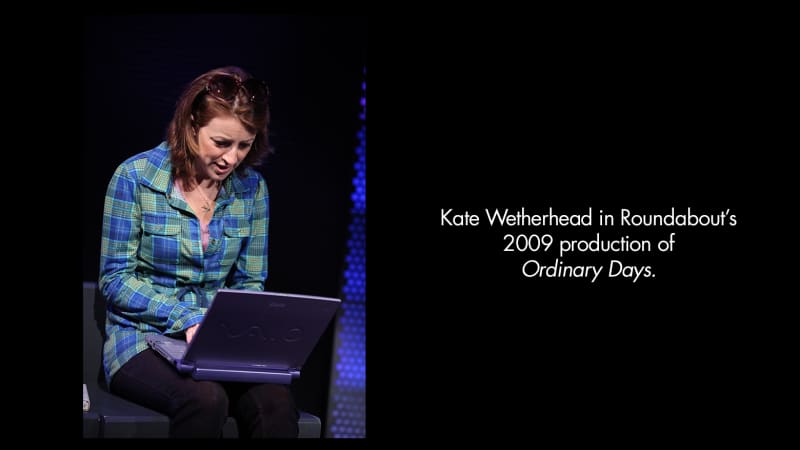
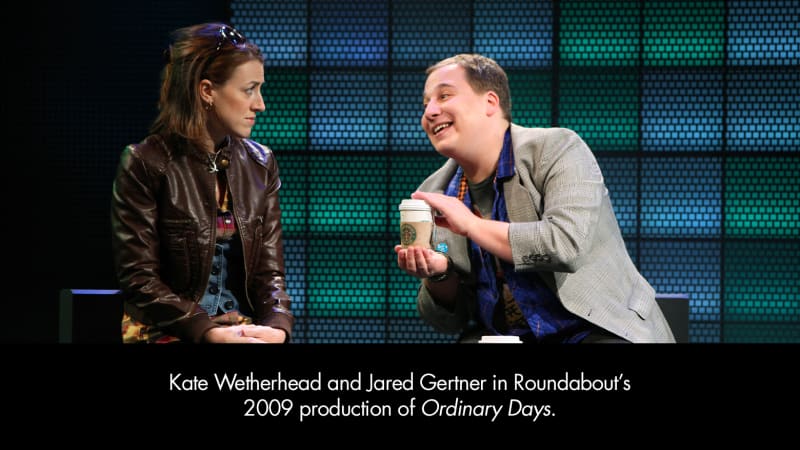
Going back through Roundabout’s archives to determine when the internet and cellphones began to enter the text of plays from our canon, Adam Gwon’s musical Ordinary Days (Black Box, 2009) surfaced as an example. While online usage and reference certainly predate this show, the musical describes the world where digital and analog bump up against each other very well. In the musical number “Dear Professor Thompson/Life Story” the character Deb (played by Kate Wetherhead) laments the fact that she has to resort to “longhand notes and xeroxed scraps” since her laptop stopped working:
MODERN LIT IS DENSE, RIGHT? BUT EVERYTHING’S OKAY. I’M WORKING ON MY THESIS EVERY DAY.
NOW, SINCE MY LAPTOP’S VERGING ON COLLAPSE, I KEEP LONGHAND NOTES AND XEROXED SCRAPS IN A HAND-BOUND BOOK THAT DRIPS WITH OLD SCHOOL FLAIR.
BUT THIS UNIQUE APPROACH CAN BE A DRAG WHEN YOU KEEP THE WHOLE THING IN YOUR BAG AND SUDDENLY THE GODDAMMED THING’S NOT THERE.
Excerpt from Ordinary Days, by Adam Gwon. Production Script of October 19, 2009, p. 11. Roundabout Theatre Company Archives.
And the number “Saturday at the Met” if written even a few years earlier might not have included the following lines:
DEB
I GOT AN EMAIL:
“DEAR DEB,
WE SHOULD MEET SO I CAN
GET YOU BACK YOUR BOOK.”
OKAY.
ANOTHER EMAIL:
“DEAR DEB,”
WARREN appears, singing the email he wrote.
WARREN
“DEAR DEB,”
BOTH
(quoting the email)
“WE SHOULD MEET SOMEWHERE IN PUBLIC
SO YOU WON’T THINK I’M A CROOK.”
WARREN
(continuing the email)
“AT THE MET MUSEUM
IN ROOM TWENTY-ONE
THERE’S A LANDSCAPE BY MONET.
(YOU CAN’T MISS IT.)
SO, I’LL SEE YOU THERE AT HALF-PAST TWELVE
THIS COMING SATURDAY.”
Excerpt from Ordinary Days, by Adam Gwon. Production Script of October 19, 2009, p. 20. Roundabout Theatre Company Archives.
You date yourself if you listen to these songs and remember a pre-internet time when emails were purely futuristic or rare, or vividly recall typing out your college thesis paper on a typewriter. In the world of 2009 (or 2007 when Gwon first began writing the musical) the landline and the typewriter weren’t quite as “old school” as they now seem.
Our recent production of what the end will be… (Laura Pels Theatre, 2022) tells the story of three generations of men in the Kennedy family. The youngest Kennedy, Tony (in the stage production played by Gerald Caesar), a high school student, and his grandpa, Bart (in the stage production played by Keith Randolph Smith) utilize FaceTime to have a conversation about love and sexuality – Tony on his phone and Bart on his tablet (which is never far from reach).
BARTHOLOMEW uses his tablet to FaceTime Tony.
TONY
I need a minute.
BARTHOLOMEW
cracking himself up
“I need a minute.”?! Never in my days did I ever think I’d have me a white grandson.
TONY
Whatever.
BARTHOLOMEW
So, how’d you meet this Antoine fella?
TONY
Now you wanna know about him?
BARTHOLOMEW
He’s a cutie pie. Freddy was nice and lean, too. Tall and sturdy and high yellow. Just like a sunflower.
TONY
That’s low key romantic.
BARTHOLOMEW
I can see how you’d wanna tap that.
TONY
And you lost me.
Excerpt from ...what the end will be by Mansa Ra. Production Script of May 4, 2022, p. 46-47. Roundabout Theatre Company Archives.
In 2023, we are accustomed to having heartfelt and intimate conversations “face to face” through a screen. The portrayal of how the virtual world creeps into and facilitates everyday conversation is significant and perfectly captures the online lives shared across generations. And perhaps just as significantly, the shows that followed this – the bandaged place and You Will Get Sick – were written by young playwrights who chose to set their plays in the pre-smartphone era. the bandaged place uses flip-phones, and You Will Get Sick uses landlines. What will happen next, a nostalgic return to letter-writing and telegrams? Seems unlikely, but who knows?


